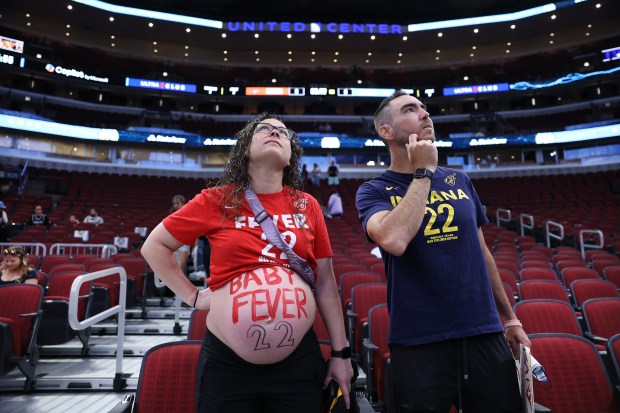A group of 28 aldermen is sending a message to Mayor Brandon Johnson with time running out to pass a Chicago budget: Make cuts, communicate more clearly and “do better.”
The City Council majority urged Johnson in a letter sent to him Thursday to make further reductions in his spending plan to help set Chicago on a “sustainable path.” The public push shows the mayor and aldermen still have far to go as they continue to grapple with the budget and an end-of-year deadline approaches.
“This is a moment where both history and the public demand that we do better, and we believe that is absolutely possible, but it requires true collaboration,” the letter reads in part.
The aldermen who signed on represent a wide swath of the City Council. They included the co-chairs of the council’s Progressive Caucus, the leader of the Black Caucus and half the “budgeteers” Johnson tapped to help him negotiate with the City Council.
“We want the city to work. Nobody wants to see a government shutdown, and we understand what our responsibilities are in this process. And it’s not simply to be some sort of rubber stamp,” Ald. Nicole Lee, 11th, said. “We need to be provided with the information that we’ve requested to ensure that we can do our own due diligence to make the best decisions that we can on behalf of our constituents.”
A first vote on the budget could come as soon as Dec. 13, though what will actually go up for a vote remains unclear. The City Council unanimously rejected Johnson’s plan to include a $300 million property tax hike last month.
The mayor then proposed a $150 million property tax hike alongside a nearly $150 million jump in taxes on subscription services and leased cloud computing space. His administration has since proposed an even smaller property tax hike of around $70 million in conversations with aldermen without clarifying what will make up for the cut in revenue.
The task of balancing the budget has only been made harder by aldermen’s apparent rejection of a $10.6 million tax hike on wholesale alcohol Johnson wanted.
Amid council pushback, the mayor also opted to restore 162 vacant police positions estimated to cost over $10 million. And he’s dealing with an unexpected Springfield tax switch-up that will set the city back another $37 million.
Johnson and the council must pass a budget by Dec. 31 or risk an unprecedented budget crisis that could shut down government services and harm the city’s financial standing.
But despite the time crunch, many aldermen still have unanswered questions, Ald. Andre Vasquez, 40th, said.
“There needs to be an understanding that there’s still things that have not been completely sorted out and finalized in a way that leads people to agreement,” he said.
The 28 aldermen asked Johnson to share an array of information with them by Saturday, including a report on the fees and fines he has considered using to close the 2025 budget gap, initially estimated at $1 billion.
The group also asked for a detailed, department-by-department report on spending cuts, an itemized breakdown of money-saving measures the Johnson administration has proposed and an analysis of budget gaps in future years.
And they tacked on a list of three “opportunities” to hold spending steady or make cuts that are sure to rankle the mayor. They called for Johnson to axe a plan to raise spending on youth summer programs from $25 million to $45 million, reduce staffing levels in his office to 2020 levels and “eliminate redundancies” between city departments and his office.
“Our constituents have made it clear that they are unwilling to shoulder a property tax increase without first ensuring that the City has done its due diligence in considering spending cuts,” the letter said. “These are all reasonable and necessary for us to fully engage in the process of passing a budget for 2025 and to set our city on the most sustainable path moving forward.”
Johnson has brushed off broad criticism of his budget process, instead hailing his effort as uniquely transparent and inclusive of aldermen. Asked Thursday where the process stands, he once again called himself the city’s “collaborator-in-chief.”
The mayor named youth employment, workforce development, mental health care, affordable home construction and safety as priorities. He called layoffs of city workers like police “not a pathway to solvency.”
“It’s very much a still-robust process,” he said. “We’re going to continue to make sure that this process remains open and collaborative.”
Aldermen expect to hear more about Johnson’s newest plan to raise revenue in briefings over the next few days. One potential solution they may hear about is already drawing pushback from big business.
Ald. Daniel La Spata, 1st, is championing an effort to expand the area in which rideshare fares include a downtown surcharge, and add weekends. Rideshare company Lyft acknowledged the effort in a mass email to customers Thursday urging them to ask aldermen to vote down the measure.
“On top of high costs of living and inflation, this is the last thing riders in Chicago need,” the company wrote.
Tribune reporter Alice Yin contributed.





